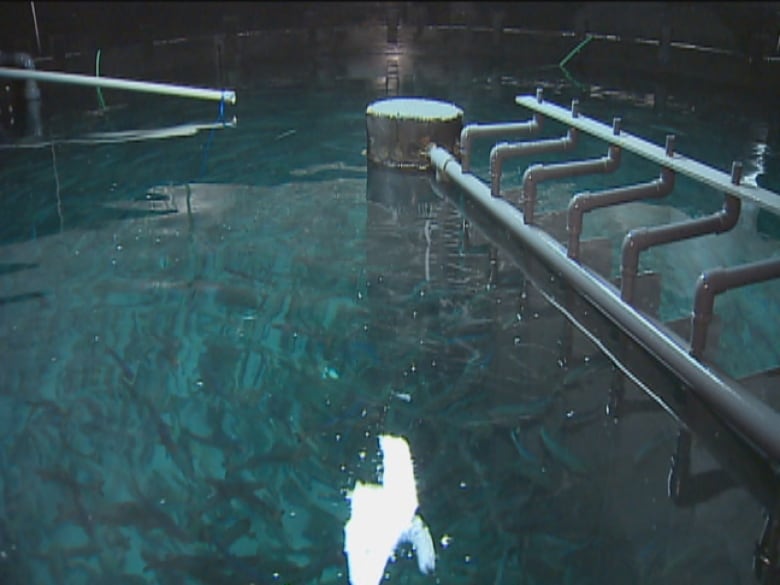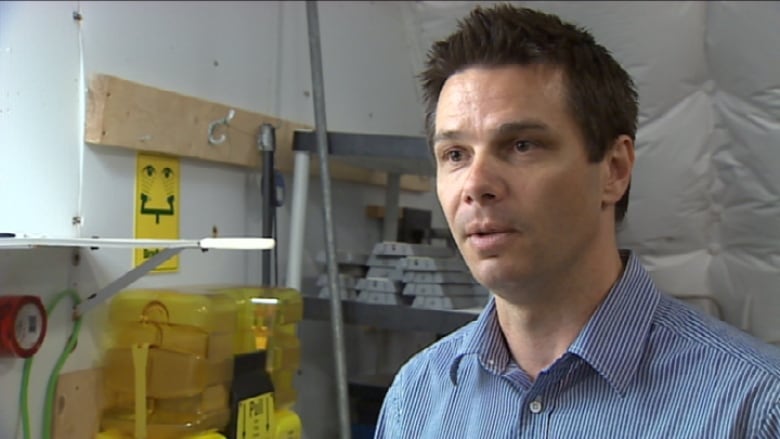
Sustainable Blue, a land-based salmon farm in Nova Scotia, was placed in receivership Thursday.
The court order granting the receivership was in response to an application by minority shareholders who have been keeping the company afloat since an equipment malfunction last November.
The shareholders — Thane Stevens and Jim Lawley — say restructuring is the only way the company can survive.
A filter that removes dissolved carbon dioxide released by fish failed in the building holding the largest salmon on site.
Within 12 hours, 96,000 market-ready Atlantic salmon worth $5 million died. They represented all the fish scheduled to be harvested between Nov. 28, 2023 and July 31, 2024.
In an affidavit, Stevens said the loss triggered a “significant liquidity crisis.”
“The November 4th Incident has had an immediate and significant impact on Sustainable Fishing Farming Canada’s (SFFC) operations and revenue,” Stevens said. “With much of its revenue producing product lost, SFFC has depleted its cash reserves in order to maintain operations.”

Stevens said the company can be viable but it must last until the next batch of Atlantic salmon will be big enough for sale. That will be this September.
About 480,000 salmon on site were not affected by the filter failure.
Cash crisis
The operation needs another $8.6 million to stabilize operations, including another $1.52 million this month, Stevens said.
The minority shareholders provided $1.5 million in emergency funding. Last month, they assumed $21 million in Bank of Nova Scotia loans to prevent foreclosure.
“As shareholder loans to SFFC are no longer a viable option, should the receivership be granted, the proposed sale and investment solicitation process offers the best chance for SFFC’s business to continue long-term,” Stevens wrote.
Deloitte has agreed to act as receiver.
Sustainable Blue bills itself as the world’s first closed-loop, land-based saltwater fishery that reuses 100 per cent of its water and creates no wastewater emissions.
The facility at Burlington, Hants County is capable of producing 1,000 tonnes of Atlantic salmon a year.
The majority owner of Sustainable Blue is Bayt Al Qoot UK Ltd., which holds a 68% interest in the shares. Its owners live in Morocco and the Middle East.
In 2019, they invested approximately $28 million US in SFFC, the parent company of Sustainable Blue.
TCAS Holdings, led by Stevens and Lawley, owns 32 per cent of the company,
The receivership application was put forward by 4595756 Nova Scotia Limited, another company controlled by Stevens and Lawley.
The company has received unsecured loans from the Atlantic Canada Opportunities Agency and the Atlantic Fisheries Fund, funded by the federal and provincial governments.

According to the application, ACOA was owed $1.38 million and the Atlantic Fisheries Fund $4 million at the end of 2023.
The case will be back in court next month.
Sustainable Blue CEO Kirk Havercroft did not respond to a request for comment. In November, he told CBC its land-based salmon farm is viable and will recover from this setback.